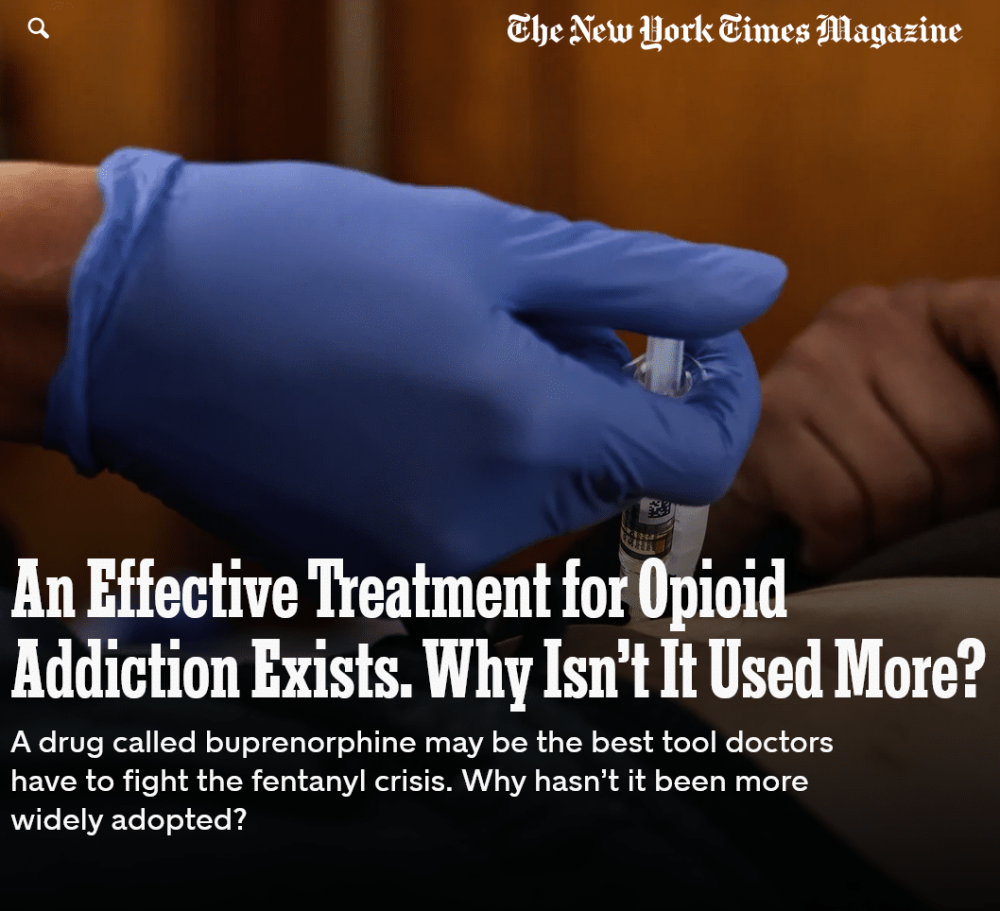According to the latest Centers for Disease Control and Prevention (CDC) health statistics, more than 100,000 people in the U.S. died from drug overdose between April 2020 and April 2021. These numbers included 75,673 deaths from opioids, a startling 28.5 percent increase from the previous twelve-month period.1
Often prescribed by doctors to treat moderate to severe pain, opioids are generally safe and effective if used short term and precisely as prescribed. However, long-term use, misuse, or abuse of opioids is hazardous and presents a high risk for addiction or overdose.
Misusing or abusing opioids means:
- Taking the drug other than as your doctor prescribed
- Taking a drug prescribed for someone else
- Taking the drug for its euphoric effect
Some of the most common prescription opioids include Vicodin, OxyContin, Percocet, Codeine, Demerol, Methadone, Morphine, and Fentanyl. Heroin is an illicit opioid.
How Do Opioids Block Pain?
Opioids bind to opioid receptors in the brain, spinal cord, and other areas, blocking pain perception and inducing a pleasurable response that may include a sense of euphoria.2 Addictive substances like opioids trigger an unnaturally high surge of dopamine throughout the body, which heightens pleasure, inhibits physical pain, and may block negative emotions like depression.3
When high levels of dopamine flood the body, you may experience such an intense sense of pleasure that you are strongly motivated to repeat the drug-taking experience. As you continue taking opioids, your body builds up a tolerance to your usual dose, demanding a more significant or more frequent quantity to deliver the desired response. Tolerance is often the first step to addiction.
What Causes Withdrawal Symptoms?
Drug dependence occurs as your brain adapts to higher and more frequent doses of an addictive substance until it cannot function normally without the drug.
Dependence often leads to drug addiction, which the National Institute on Drug Abuse defines as “a chronic disease characterized by compulsive, or uncontrollable, drug seeking and use despite harmful consequences and changes in the brain, which can be long lasting.”4
Withdrawal symptoms occur when you stop using a drug after your brain and body have adapted to its presence. Without the drug, your body experiences mild to severe physical and emotional reactions as it struggles to regain equilibrium.
Withdrawal symptoms vary in severity depending on the drug used, the duration and dosage used, and your overall physical and mental health.
Withdrawal symptoms may include:5
- Nausea and vomiting
- Anxiety
- Insomnia
- Hot and cold flushes
- Perspiration
- Muscle cramps
- Watery discharge from eyes and nose
- Diarrhea
Withdrawal can be dangerous, as vomiting and diarrhea may lead to severe dehydration, heart failure, choking, and lung infections, which can cause death.6 Withdrawal under medical supervision ensures you are physically and mentally supported and protected throughout the detoxification process.
Detoxification, detox for short, happens as your body rids itself of toxic substances like opioids once you stop using the drug or cut the dose significantly.
What Helps Ease Opioid Withdrawal Symptoms?
When you withdraw from opioids under direct medical supervision, your doctor can administer one or more medications to make the process safer and significantly more comfortable.
In 2018 the FDA approved lucemyra, the first drug to specifically target symptoms of opioid withdrawal, including “aches and pains, muscle spasms or twitching, stomach cramps, muscular tension, heart-pounding, insomnia or other sleep problems, feelings of coldness, runny eyes, yawning, and feeling sick.”7
Both lucemyra and a similar drug, clonidine, help lower stress and anxiety, but clonidine also helps treat high blood pressure and may be prescribed for that purpose.8
Your doctor may prescribe several other medications to help manage withdrawal from opioids, alcohol, and other addictive substances. The following drugs attach to opioid receptors or adrenergic receptors in the brain to block or ease withdrawal symptoms and cravings or, in the case of opioid receptor antagonists, to prevent euphoric effects:9
- Methadone
- Naltrexone
- Buprenorphine
- Buprenorphine/Naloxone – This combination may be used to reduce the risk of buprenorphine misuse.
- Buprenorphine produces mild opioid effects, while naloxone reverses or blocks the effects of opioids.10
- Naloxone – An emergency nasal spray or injection used to reverse the effects of opioid overdose.
Physical symptoms associated with opioid withdrawal usually begin within eight to twelve hours after the last use and continue for four to twenty days, depending on the opioid used.11 Research has found mental health side effects may last much longer.
Because abruptly stopping opioid use can be extremely uncomfortable, your medical detox program may use a tapering protocol, meaning your doctor gradually reduces your opioid dose. Tapering is also referred to as a medication withdrawal plan and can take several weeks to complete.12 Fortunately, you can begin the behavioral therapy phase of your recovery plan while still tapering.
In-patient or outpatient therapy takes place after detox. It typically involves some or all of the following components that will help you manage any ongoing withdrawal symptoms and stay on your path to recovery:
- Individual, group, and family counseling
- Support group participation
- Trigger management and coping skills
- Relaxation techniques
- Healthy living strategies
Experts stress that detox alone is not a sufficient treatment for opioid dependence. If you do not follow up detox with a drug rehabilitation treatment plan, you are at an increased risk of relapse and overdose.13
Gallus Medical Detox has helped thousands of patients detox from opioids and other addictive substances comfortably and successfully. We understand that entering a detox program can be frightening and that fear might be holding you back from seeking the help you need.
At Gallus, we promise to take the fear out of detox and keep you at ease as we attend to your physical and emotional needs. When you have completed your stay with us, we will help you transition to the next phase of your recovery plan, providing the guidance you need to achieve a successful long-term recovery.
Contact Gallus today for more information.
Sources
- https://www.cdc.gov/nchs/pressroom/nchs_press_releases/2021/20211117.htm
- https://www.verywellmind.com/what-are-opiates-2795406
- https://www.sciencedaily.com/releases/2019/03/190313132254.htm
- https://nida.nih.gov/sites/default/files/drugfacts-treatmentapproaches.pdf#:~:text=Drug%20addiction%20is%20a%20chronic%20disease%20characterized%20by,drugs.%20Drug%20addiction%20is%20also%20a%20relapsing%20disease
- https://www.ncbi.nlm.nih.gov/books/NBK310652/
- https://www.verywellmind.com/opioid-withdrawal-2564485
- https://www.fda.gov/news-events/press-announcements/fda-approves-first-non-opioid-treatment-management-opioid-withdrawal-symptoms-adults
- https://www.health.harvard.edu/blog/lofexidine-another-option-for-withdrawal-from-opioids-but-is-it-better-2018060614515
- https://nida.nih.gov/drug-topics/trends-statistics/infographics/medications-opioid-overdose-withdrawal-addiction
- https://www.webmd.com/connect-to-care/addiction-treatment-recovery/buprenorphine-and-naloxone
- https://www.ncbi.nlm.nih.gov/books/NBK310652/
- https://www.mayoclinic.org/diseases-conditions/prescription-drug-abuse/in-depth/tapering-off-opioids-when-and-how/art-20386036
- https://www.ncbi.nlm.nih.gov/books/NBK64108/


 Steve B
Steve B 
